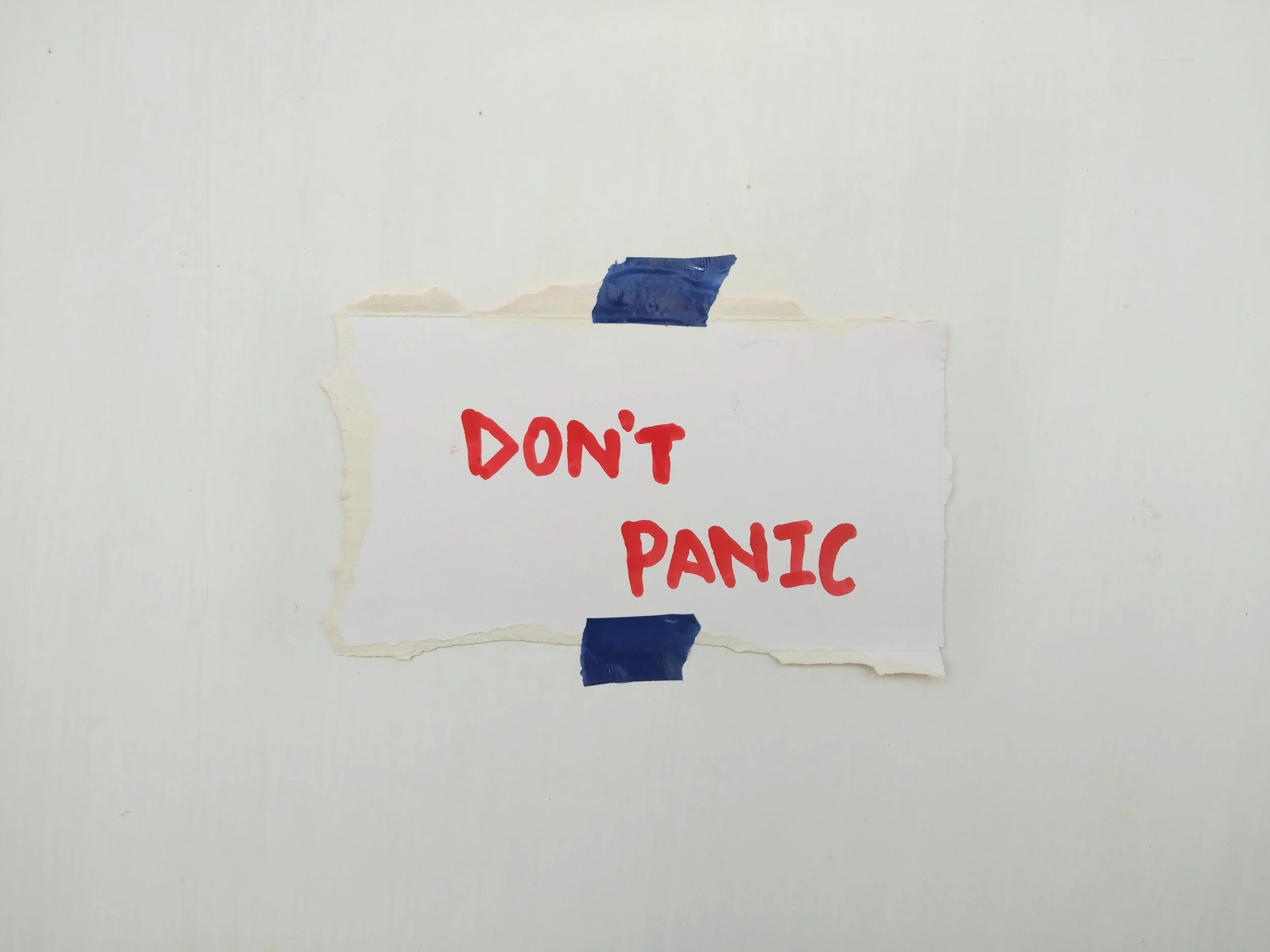
Articles
A large part of personal branding is about showing up in the world.
How you show up and what you talk about is your choice, here are some of my thoughts on what is important in unlocking success In ourselves, our people and our business. Hope you find some golden nuggets here for you.


Historically, finance professionals were comfortable navigating a finite set of possible business outcomes. We followed a well-defined set of rules, supplemented by a handful of variables such as GDP or CPI, which could be modelled into forecasts and business plans.
The Crucial Question: How Do I Eloquently Review the True Business Leadership of My Organisation, and Embrace Its Opportunity to Lead in Sustainability?
We now face an existential challenge that, in part, may have been driven by our own lack of long-term systems investment. Which leads me to question how can we operationalise sustainability when our systems are already underperforming?
Today with mandated sustainability & climate reporting now impacting all businesses around the globe I am curious to ask what position is the CFO being asked to fulfill?
In today's rapidly evolving business landscape, finance professionals and CFOs find themselves at the forefront of the strategic decisions that shape the future of their organizations.
Whatever our reason is/was for starting out under own steam how many of us have thought about what is involved and more importantly how much money will I need to be able to maintain my living costs whilst being able to grow my business. I call this our financial runway.
How can we take the ecosystem of a major transport hub, such as an airport and apply those fundamentals of structure, process and people to our own professional journey.
It’s true that what gets measured, matters. Without measure how do we know is something is on track, falling behind, fits into our values, aligns with our strategy, or is even relevant to our goals, should we be spending time on it?
It’s true that what gets measured, matters. Without measure how do we know is something is on track, falling behind, fits into our values, aligns with our strategy, or is even relevant to our goals, should we be spending time on it?
This era of COVID-19 has given me pause to think about – and rethink – a lot of my assumptions and things I have taken for granted. Like the concept of time and the meaning of the words we throw around with abandon.
What had gone wrong? I believe the business had lost sight of the basics. There was a lack of effective leadership, little strategic direction and a dearth of reporting capabilities. Not only had business plateaued, the company had lost direction and stalled. It was missing clarity and a strategic plan.
I have been consolidating my thinking this year – being forced to stay home tends to sharpen your focus on the important things, I’ve discovered – and have calibrated my internal compass. This has given me a clear direction for the next decade in terms of what I want to deliver to the world.
I guess you could call this my ‘how’ stage of thinking. I’ve always been very good at the ‘what’ – that is, working out what I want to achieve – but it was time I pushed myself into the ‘how’ – that is, how I will go about achieving those goals.
We hear it all the time in business, especially in times of crisis: We all need to step up. Well, if ever there was a time to do that, now is it. The COVID-19 crisis will only exacerbate the frustrations I was already seeing at levels below the CFO in many organisations. Group finance managers in larger multinational organisations have long been telling me about the challenges…
If you are like me, the feelings of fear and uncertainty about where this COVID-19 pandemic will take us are being at least partly offset by a sense that now is the perfect time to think creatively, and disruptively, about the future and our part in it. I know some people, unfortunately, have found themselves suddenly without work, while others have been forced out of their workplaces and are working from home.
This COVID-19 pandemic has caused, and will cause, a seismic shift in how we go about our life and business. So, with the balancing act between opportunity and danger in mind, I have put together a series of articles called Creativity in a Crisis and in this, my first one, I’m looking at the power of the trigger event.
I have talked a lot about strategy, including having a 10-year plan and clarity about what is important. But I was challenged on this at a women’s networking function I hosted recently. The question was: isn’t a linear 10-year plan too rigid, going against all my ideas about allowing for new thinking and looking out for opportunities?
Two of the situations I regularly find myself in thanks to my various roles are committee meetings and networking events. Both scenarios have taught me a lot about getting the best out of the people around you, and out of yourself, whether you are ‘in the chair’ or ‘out of your chair’ at the time. Let me explain …
Just lately I’ve been watching my behaviour from the outside. With the help of a business coach, who is my sounding board as I shape and explore opportunities for the coming decade, I’ve been removing myself from my business bubble and watching from an outsider’s perspective.
When you think about it, we spend most of our formative years learning things other people tell us we need to know. Our parents, guardians, teachers, coaches, mentors and many others guide us through early development, school and then, for some, college or university. That’s at least 20 years of academic learning (and, of course, life learning, which requires a whole different conversation), during which we do make some decisions…
I seem to have my best thoughts when I am travelling. Maybe the change of scenery helps to shift my BAU (business as usual) thinking and tap into something more creative. The escape from normal routine seems to allow me to explore and think differently. Note to self to explore that more often!
With all employees now being held accountable for the rewards upon which their role delivers, why do we not hold our ‘pinnacle role’ at the top of the structure to the same degree and what time-frame do we give our leaders to deliver? What does it take to really deliver value to an organisation and how is that top role really measured on what they achieve?
Indeed – living a full life has its own meaning for everyone. For me, living a full life simply means living fully in every moment. That means leaving behind the sense of self-doubt, not allowing those inner voices to dominate that question whether I could or should do something. Pushing through moments of fear and always coming back to my question (my barometer)… ‘what’s the worst thing that will happen by deciding to do this …’
I often talk about you being your own CEO. In that case, you should have a plan for where you’re heading and a strategy for getting there. How often you do you assess where you sit in the strategy of ‘you’ and how you are going to own your success? The first thing you should consider (and it’s another principle I often repeat) is what got you here won’t get you there. That is, you can’t rest on your laurels, because things keep changing and so should you.
When you look out to your career and/or personal horizon, what do you see? Is it a clear vision of where you want to be or do you find it difficult to see past all the obstacles standing between you and the future you are trying to envisage? When I talk to people about planning and strategising for their future, I’m often met with responses such as “everything is holding me back” or “I can’t visualise my future because I can’t see how my goals might be fulfilled”.
Do you ever get the feeling the word value is used so liberally these days that it has lost its value? We’re constantly being told what ‘value for money’ we’re getting when we make purchases; that a service provided is ‘good value’; or that we need to ‘value add’ in our own workplaces.
Being open is about whether you can hit the pause button on your life. Be open to consider whether you are on the right path. Whether what you do each day is serving you well and whether this is the life you want to live…Being open to review and decide if you should forge ahead with gusto. Being open as to whether you should stop and pivot in a different direction or perhaps be open to stop chasing a dream that is no longer important….?
To me, Clarity means an uncluttered mind, a clear direction to which you want to head, to understand your value, to embrace your journey. And ultimately Clarity means for me to really step into my power. For others it could mean clean, clear and perhaps clarity relating to a precious stone, a diamond has ratings of how clear they are, called their clarity measure. Imagine if we had a measure of clarity for homo sapiens….what would we call it… success perhaps..?
Conventional wisdom says we each make 35,000 conscious, sub-conscious and unconscious decisions a day.
These decisions might crop up in a business or professional environment, in our personal life, in our circle of family and friends, or in a community/public context. Some are far more important than others, of course, and sometimes a seemingly minor decision can flow on to major consequences.
Self-Reflection is a wonderful thing to do when we make the time. Often people say to me that they don’t know anything, that they are not sure how they stand apart from a sea of sameness, a sea of others who all appear to have similar skills… My answer to this question is simple – take a look at what your life has thrown at you so far. Depending on your age there might be 2 or 3 or even 10 big lessons that you have learnt in your lifetime already…





























A BCP is a document outlining what processes should be followed in an emergency. All the hard thinking and planning for what action to take when we are faced with a ‘trigger event’ has all been done in ‘peaceful’ times, when we could approach it in a methodical, clear-minded way, rather than in an environment clouded with emotion.